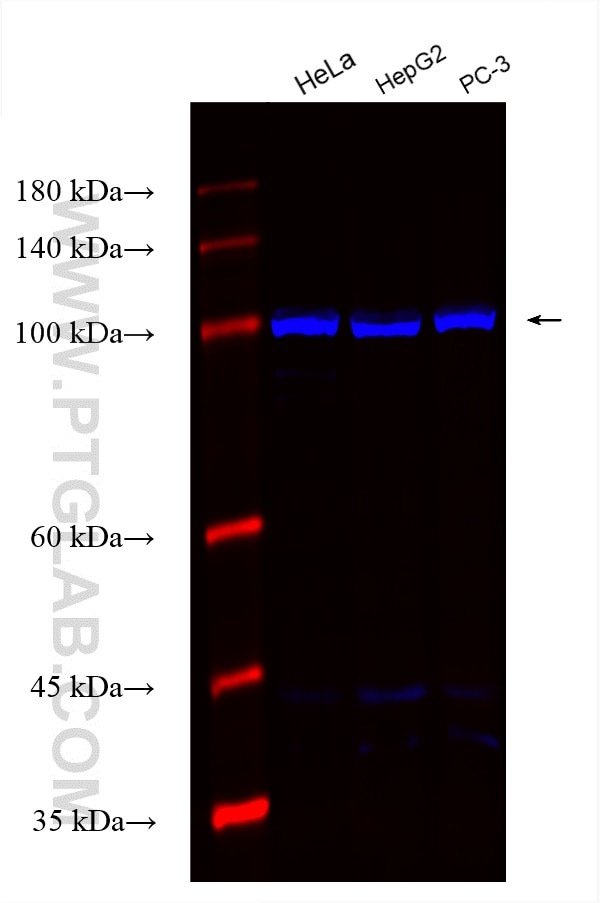Tested Applications
| Positive WB detected in | HeLa cells, HepG2 cells, PC-3 cells |
Recommended dilution
| Application | Dilution |
|---|---|
| Western Blot (WB) | WB : 1:1000-1:4000 |
| It is recommended that this reagent should be titrated in each testing system to obtain optimal results. | |
| Sample-dependent, Check data in validation data gallery. | |
Product Information
CL750-82970 targets ANO4 in WB applications and shows reactivity with human, mouse, rat samples.
| Tested Reactivity | human, mouse, rat |
| Host / Isotype | Rabbit / IgG |
| Class | Recombinant |
| Type | Antibody |
| Immunogen |
Peptide Predict reactive species |
| Full Name | anoctamin 4 |
| Calculated Molecular Weight | 111 kDa |
| Observed Molecular Weight | 100-111 kDa |
| GenBank Accession Number | NM_178826 |
| Gene Symbol | ANO4 |
| Gene ID (NCBI) | 121601 |
| RRID | AB_3673756 |
| Conjugate | CoraLite® Plus 750 Fluorescent Dye |
| Excitation/Emission Maxima Wavelengths | 755 nm / 780 nm |
| Form | Liquid |
| Purification Method | Protein A purification |
| UNIPROT ID | Q32M45 |
| Storage Buffer | PBS with 50% glycerol, 0.05% Proclin300, 0.5% BSA, pH 7.3. |
| Storage Conditions | Store at -20°C. Avoid exposure to light. Stable for one year after shipment. Aliquoting is unnecessary for -20oC storage. |
Background Information
ANO4, also named as TMEM16D, belongs to the anoctamin family. ANO4 is primarily expressed in the central nervous system and certain endocrine glands, and it has been linked to a variety of neurological disorders (PMID: 36836529). The antibody recognize the isoform1 and isoform2 of ANO4.
Protocols
| Product Specific Protocols | |
|---|---|
| WB protocol for CL Plus 750 ANO4 antibody CL750-82970 | Download protocol |
| Standard Protocols | |
|---|---|
| Click here to view our Standard Protocols |




